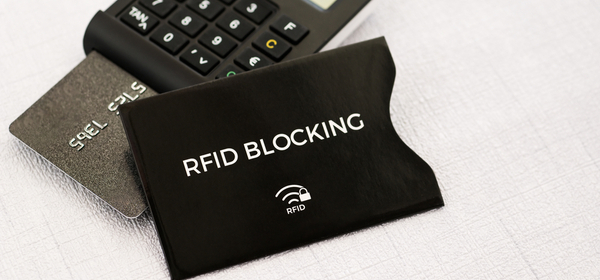With RFID (which stands for Radio Frequency IDentification) technology being used for many credit and debit cards, as well as being an integral part of all new Australian passports, it is becoming more important to protect your money and identity from cyber theft.
RFID technology is what allows your credit card to work with the Paywave system. But this also means that it is possible for a high-tech pickpocket to walk down the street with an RFID reader wirelessly grabbing information from the cards in your handbag or pocket as they walk past.
However, with every new security threat comes a solution. Now people are able to purchase RFID-blocking wallets or skimguards to keep their cards safe from would-be thieves.
Firstly, though, it is important to point out that this type of theft is currently very rare.
While police have linked tap-and-go cards with an increase in theft, most of this involves thieves using an actual card stolen from a wallet or purse to take money from victim’s accounts.
The banks and financial institutions that issue Paywave cards insist the technology is just as safe as your regular credit cards, and that all transmitted information is safely encrypted, but some people may still prefer having extra piece of mind.
RFID-blocking wallets or skimguards will impede your cards’ RFID signals, making them harder to read remotely by digital pickpockets.
If you do want to protect your cards without forking out the cash for a skimguard, you can take the simple approach and wrap your credit cards in aluminium foil, which will serve exactly the same function.
Also, remember that if a thief does steal your card or skim your details and collect a payment, contact your bank as soon as possible and they will reimburse you for any money lost.
Do you trust Paywave technology? Or are you worried about skimmers taking your money?
Related articles:
Is your credit card being scammed?
Keep your travel valuables safe
The Volterman Smart Wallet
All content on the YourLifeChoices’ website is of a general nature and has been prepared without taking into account your objectives, financial situation or needs. It has been prepared with due care, but no guarantees are provided for ongoing accuracy or relevance. Before making a decision based on this information, you should consider its appropriateness with regard to your circumstances. You should seek professional advice from a financial planner, lawyer or tax agent in relation to any aspects that affect your financial and legal circumstances. Financial comments provided by readers cannot be relied on as professional advice, but as general comments only.

